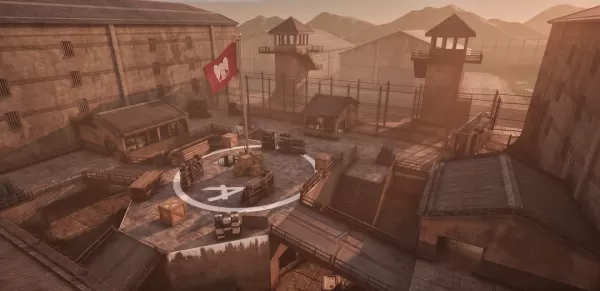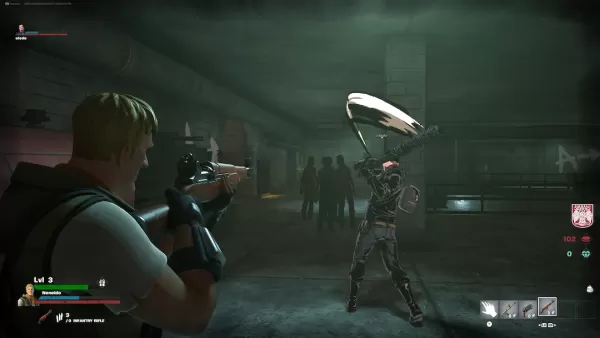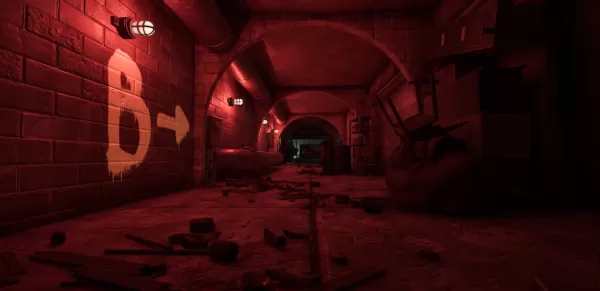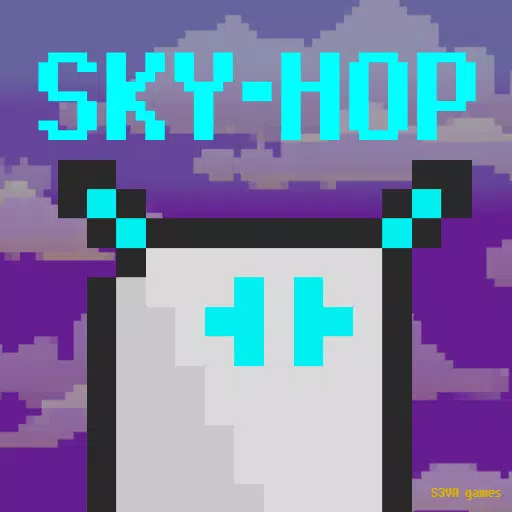The gaming industry has faced significant challenges in recent times, with layoffs, studio closures, and funding issues becoming all too common. Enrique Fuentes, CEO and co-founder of Teravision Games, felt this turbulence firsthand when his team launched Killer Klowns From Outer Space, an asymmetrical horror game inspired by the iconic 80s movie. Despite receiving positive reviews, including a 7 from IGN who praised its entertainment value, the team struggled post-launch, mirroring the struggles of many in the industry.
Fuentes explains, "As you know, 2024 was a pretty tough year for the whole industry. So it was a little bit slow for us to close our next project." Despite collaborations with major brands like Disney, Nickelodeon, and Xbox, finding a follow-up project proved challenging. With time running out, Teravision turned to a novel approach: developing games within Fortnite. In less than a year, they released three Unreal Engine for Fortnite (UEFN) games, with their fourth game, Courtyard King, launching today. This game leverages the official The Walking Dead content pack in UEFN.

In partnership with Skybound, the company co-founded by The Walking Dead creator Robert Kirkman, Courtyard King is a King of the Hill style multiplayer PvPvE game set in the series' infamous prison location. The game uses official The Walking Dead assets, including character models of Rick Grimes, Negan, and Daryl Dixon, and incorporates a storyline crafted with Skybound's writers.
Fuentes highlights the shift in development speed, stating, "Instead of a multi-year project like Killer Clowns From Outer Space, these are projects that we could put together in weeks or months." He further notes the unexpected path their company took, "We have worked with big brands in the past… and UEFN was something that we were experimenting with… but we never imagined that was going to be the route where we’re going to be engaging with a company like Skybound."
User-generated content (UGC) has become a significant trend in gaming, especially on platforms like Fortnite. While typically associated with individual players, UGC developed by professional studios like Teravision is a newer concept. The tools provided by Fortnite's Unreal Engine 5 were ideal for experienced developers like Teravision, allowing them to experiment and mitigate risk.
Teravision's first foray into UEFN was Havoc Hotel, a roguelike shooter set in a hotel where players fight through levels, earning currency to buy more powerful weapons. The success of the initial game led to the development of Havoc Hotel 3, which has become one of Fortnite's most popular titles.

Martin Rodriguez, Teravision's game designer, notes that their experience with Unreal Engine for Killer Klowns made transitioning to UEFN straightforward. The streamlined systems and "drag and drop" processes allowed the team to focus on creating better games and exploring new ideas.
However, the game design team faced unique challenges. Creative director LD Zambrano explains, "A traditional experience we have had designing other [non-UEFN] games is where players relate through objectives that entice cooperation and competition, right? In [UEFN's] case, we have found that even though those objectives are still relevant and we still can use that game design sensibility and bring them there, I found that there are a lot of experiences that are very popular within the Fortnite ecosystem that are kind of just context."
Zambrano likens UEFN games to a schoolyard, where players engage in spontaneous and sometimes nonsensical games that foster friendships. Courtyard King embodies this concept as an infinite game, where matches have no final winner, allowing players to join and leave at will, even switching teams mid-match, which adds a layer of betrayal reminiscent of The Walking Dead.

For indie developers, UEFN represents a new viable model. Fuentes states, "We can actually assume the risk as an indie developer in [UEFN]. Because last year, we couldn’t even think about starting a three-year project. We could do something in a few weeks with a smaller team and that completely changes the paradigm for a new developer. This is now a viable model where you can actually support an 80-person studio like we do, and we can assume the risk."
With the right ideas, creativity, and market understanding, UEFN allows for rapid game development and execution, making it a dream come true for indie developers looking to innovate and thrive in the challenging landscape of the gaming industry.














